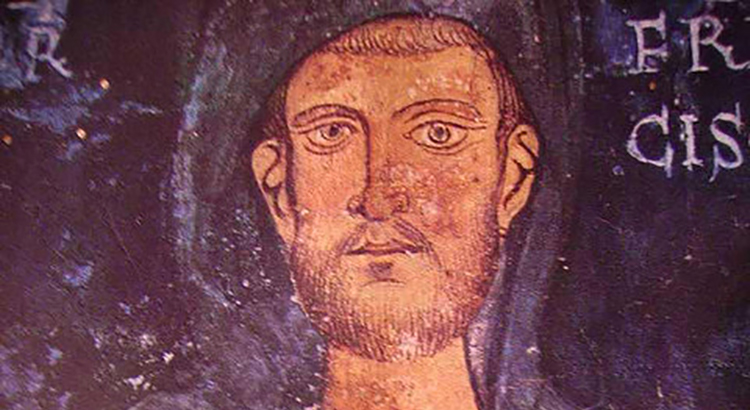Prayer for peace
The prayer for peace is held in the Basilica of Santa Maria in Trastevere.
Memorial of blessed Giuseppe Puglisi, priest of the Church of Palermo, who was killed by mafia in 1993.
Reading of the Word of God
Alleluia, alleluia, alleluia
This is the Gospel of the poor,
liberation for the imprisoned,
sight for the blind,
freedom for the oppressed.
Alleluia, alleluia, alleluia
Romans 4,20-25
Counting on the promise of God, he did not doubt or disbelieve, but drew strength from faith and gave glory to God, fully convinced that whatever God promised he has the power to perform. This is the faith that was reckoned to him as uprightness. And the word 'reckoned' in scripture applies not only to him; it is there for our sake too -- our faith, too, will be 'reckoned' because we believe in him who raised from the dead our Lord Jesus who was handed over to death for our sins and raised to life for our justification.
Alleluia, alleluia, alleluia
The Son of Man came to serve,
whoever wants to be great
should become servant of all.
Alleluia, alleluia, alleluia
The apostle writes to the Romans that the experience of Abraham is directly relevant to us Christians who "believe in him who raised Jesus our Lord from the dead" (v.24). In a Jewish Midrash it is written that: "Everything that has been written about Abraham is repeated in the history of his children." Paul writes to the Romans that the Lord who revealed himself to Abraham and made him righteous because of his faith. The apostle explains that through his death on the cross, Jesus took all the sins of the world on himself and justified us through his resurrection: "Who was handed over to death for our trespasses and was raised for our justification" (v.25). With this explanation, the apostle interprets Abraham's faith by linking it to the mystery of Jesus himself, who dies and who rises. The God of Abraham is revealed in his fullness in Christ Jesus. Consequently, the story of Abraham is emblematic for all believers, and, in particular, for Christians, because it demonstrates the radical nature of faith: it is through faith that we too are bound to God, just like the first of the patriarchs, who believed, "hoping against hope." That faith, which has also become our own, asks us to trust completely in the Son of God and his mystery of salvation. Christian trust is like Abraham's. That means that faith is not primarily a work for us to carry out, it is above all and first of all the giving of ourselves to God, who calls us; it is trusting in God's will and in his loving plan, in which he makes us take part. The mystery of faith and salvation was unveiled in its fullness in the coming of Christ, with his death and resurrection. Abraham, the prototype of the Christian, is the "father of all believers."
